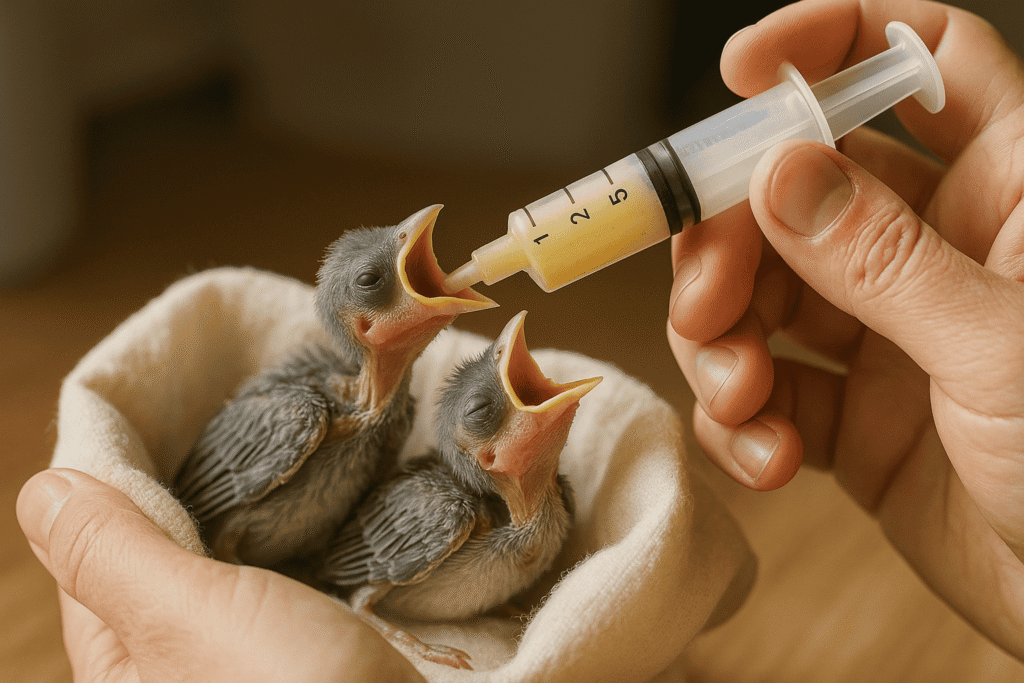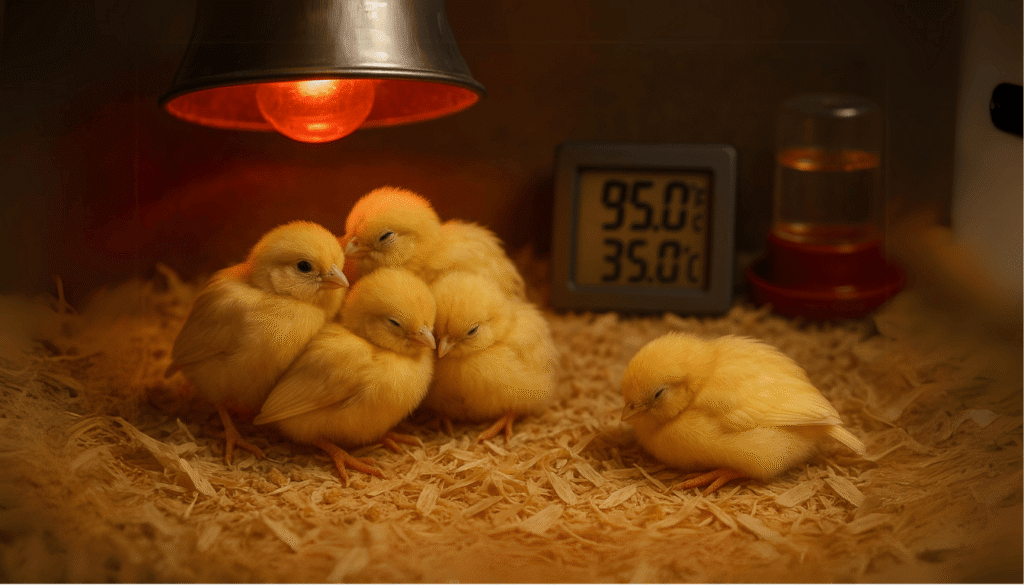Raising bird chicks as pet birds is such a wonderful experience, but challenging too. You, as the pet parent, need to provide your feathered friends with optimal care from day one so they grow into well-adjusted healthy, happy adults. This complete guide will lead you through essentials of chick bird care, like feeding, accommodation, health, and socialization, to show you how to care for your little buddies lovingly and patiently.
Introduction: Learning the Basics of Pet Birds Chick Care
Pet bird chick care is a delicate process that requires attention, knowledge, and patience. Whether you’re raising a baby parrot, canary, or budgie, there are several key aspects to consider. Baby birds are highly vulnerable and rely on their caregivers to meet their physical, nutritional, and emotional needs. Proper bird chick nurturing can make a huge difference in their development and well-being, so let’s dive into the essentials of raising your pet bird chicks.
The Importance of a Nutritious Diet for Bird Chicks
Maintaining a proper diet is the secret to healthy growth among bird chicks. Just like humans, baby birds need a balanced and nutritious diet for the growth of strong bones, feathers, and immunity. Without the right kind of nutrients, they are bound to suffer from stunted growth or get sick.
Bird Chick Feeding
Baby birds also have different dietary needs depending on their species. Some chicks, for instance, will require a specific formula or hand-feeding, while others can be ready to eat solid foods. Start with high-quality chick starter formulas that are specifically designed for the bird species you are raising. These formulas provide all the nutrients like protein, vitamins, and minerals your bird needs.
Nutritious Diet for Chicks
Apart from the specialized feed, you can also introduce softer foods such as chopped vegetables, fruits, and seeds (if the chick is old enough). Ensure that any food you offer is safe for the bird species because some foods are poisonous to birds. Always consult your vet or an avian specialist to determine the most appropriate feeding schedule and diet plan for your chick.
Creating the Best Environment for Your Bird Chicks
Bird chicks require a safe and cozy living environment to survive. Their environment should replicate the warmth and safety they would enjoy from their mother in the wild. Creating a best environment will guarantee that your chicks become strong and healthy.
Bird Chick Habitat
A clean, spacious, and safe enclosure is a necessity. A miniature box or incubator can be employed to house very young chicks in warmth and comfort. As they grow older, relocate them to a larger cage where they are free to open their wings and stretch their legs.
Optimal Temperature for Chicks
Baby birds are highly sensitive to temperature. Make sure you maintain a consistent, warm temperature in their cage, especially during the early stages. The ideal temperature range for most chicks is 85–90°F (29–32°C). As they grow up, you can gradually reduce the temperature to around 75°F (24°C).
Safe Living Space for Baby Birds
Ensure that the living space of your bird chick is free from drafts, predators, and hazards. Cover the bottom of the enclosure with soft bedding like towels or shredded paper, but not so soft that they can be accidentally ingested. Include perches and food and water in accessible positions.

Nesting Requirements
Bird chicks, especially those that are still too young, can be given a warm nesting environment. This mimics the warmth and protection they would get in the wild from their fathers and mothers. A portion of soft nesting pad or a small section of the enclosure with supplemental heat can provide them with the environment where they can rest and feel secure.
Health and Hygiene Concerns in Chick Care
It is very important to keep your bird chicks clean and healthy. Infections, growth issues, or even death can occur due to poor health handling or an unclean environment.
Chick Health Observations
Check your chicks daily for the signs of normal growth. Normal bird chicks are active, lively, and have smooth, shiny plumage. They ought to be eating continuously and ought to have a dry, clean vent region (where they eliminate waste). If you notice any change in their behavior, appetite, or general body condition, contact a veterinarian immediately.
Common Diseases in Bird Chicks
Bird chicks are susceptible to several diseases, including respiratory infections, gastrointestinal diseases, and dehydration. Always observe your bird chick closely to detect any indication of illness, like lethargy, refusal to eat, or abnormal droppings. Immediate action will prevent the spread of sickness.
Hygiene Practices for Baby Birds
Clean the chicks’ living area often to avoid waste, food particles, and bacterial accumulation. Wash their food and water dishes daily to ensure cleanliness and hygiene. Always wash your hands before touching your chicks to prevent germs from being transferred.
Signs of Healthy Chicks
A healthy chick will be active, with bright eyes, smooth feathers, and an active, curious nature. They will be eating and drinking well and should be gradually increasing in size. Monitor their weight and ensure it is gradually increasing. Regular vet visits can ensure their health is on track.
The Importance of Training and Socialization in Raising Happy Bird Chicks
Similar to humans, birds need social interaction in order to be happy. Socialization and training both play an important role in raising happy and well-adjusted pet birds.
Bird Socialization Methods
Birds are social, and it’s important to start socializing them at a young age. Gradually expose them to various environments, noises, and individuals. Talk softly and frequently to your chick, and don’t make sudden, loud sounds that may frighten them. Exposing them to toys or other birds for social interaction can help them get used to interacting with others as well.
Training Young Birds
Training has to begin early, and it is as simple as making them walk up onto your finger or on to your palm. This fosters trust and forms an excellent bond. Rewarding them with treats for emulating good behavior is a fine method to train your chick.
Bonding with Your Pet Bird Chick
Forming a connection with your chick is critical. Interacting with your bird daily, handling them gently, and communicating with them builds a strong relationship. Birds crave love and attention and this bond will form the foundation of a healthy and joyful relationship for a lifetime.
Behavioral Development in Chicks
Observe your chick’s behavioral growth. Parrots are smart and can learn to do new things very early in life. Exposing them early to many experiences will acclimate them to become well-adjusted pets once they grow up.
Troubleshooting Common Challenges in Bird Chick Care
While having pet bird chicks as pets is a pleasing and gratifying experience, it is not an easy task. Some of the most common issues encountered by bird owners are summarized below:
Baby Bird Care Issues
Some chicks may not be able to eat, particularly if they have been hand-reared. Ensure you are feeding them at the right times and through the proper method of feeding. In case your chick is not eating or drinking, it’s very important to see an avian vet.
Overcoming Feeding Problems in Chicks
If your chick is having trouble eating, try varying their food or changing their feeding schedule. If the problem continues, see a veterinarian because he or she will be able to determine the source of the trouble and suggest solutions.
Handling Sick Chicks Effectively
In case your chick becomes sick, there is a need to act immediately. Contact a vet as soon as you notice such symptoms as sleepiness, lack of appetite, or unnatural behavior. The faster you act, the greater are the chances to save your ailing chicks’ lives.
Taking care of bird chicks is a fulfilling and learning experience. With the right care, attention, and environment, you can raise your feathered pets into healthy, cheerful adult birds. Don’t forget, love and patience are essential in raising these delicate birds. As a pet owner, your contribution to their development counts—a lot; embrace the process, and you will be blessed with a loyal friend for the rest of their lifetime.

Jalea Stevens, a veterinary student with a heart for animal health, education, and community. As I work toward earning my DVM, I’m especially passionate about making veterinary knowledge more accessible to pet owners and animal enthusiasts. Throughout my journey, I discovered one of my many missions is to bridge the gap between clinical knowledge and everyday pet care empowering others to make informed decisions for the animals they love.





